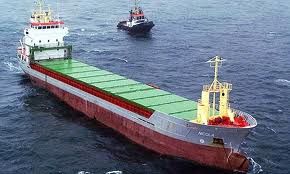
A natural progression following the lifting of apartheid was bound to be the integration of more black staff into hitherto proscribed positions and a side effect was
the emancipation of women in certain sectors of trade and industry, including the country’s port activities. The sight of a black woman marine pilot arriving to guide his bulk tanker or container ship full of valuable freight is however apparently still a shock to many a captain as he arrives at the port of Durban.
Here it is then that the first three black female pilots have made history by obtaining their open licences to navigate vessels of any size through South African waters. Precious Dube, Bongiwe Mbambo and Pinky Zungu were among the earliest development candidates introduced by Transnet National Ports Authority in the late 90’s to encourage more black participation in the company’s operations with many of their compatriots achieving other senior positions such as harbour mastering and port captaincy.
Like so many avenues which were formerly closed to the disenfranchised sectors of society the ladies achievements demonstrate what is now possible with hard work and determination although according to Bongiwe Mbambo the first arrival of a black woman pilot alongside a vessel can be the cause of some amazement, if not a little initial concern:
“The captain actually took photographs and recorded a video while I was performing my job alongside him. It was very funny,” she says of her first assignment
Her newly qualified colleagues had similar experiences, and no few difficulties whilst undergoing the experiential training stages as cadets out at sea with shipping lines such as Safmarine and Unicorn, sailing between South Africa, Europe and the Far East. Pinky Zungu remembers:
“Being at sea was difficult at first. I was the only cadet and the only female on a Russian cruise ship where only the captain spoke English well.”
The three followed similar career paths, first receiving bursaries from Transnet to pursue a one-year maritime studies programme. Following the at sea stages they took oral examinations with the South African Maritime Safety Authority (SAMSA) and obtained Class 3 tickets to be junior deck officers responsible for auto piloting vessels and managing safety equipment. They then trained and worked as tug masters at Transnet, manoeuvring ships in and out of the port with the aid of small tugboats.
After a one year pilot training programme they qualified as junior pilots before progressing through the various licence grades, starting with smaller ships of around 16,000 gross tonnes progressing up to 35,000 tonnes in stages and eventually finishing with an open licence giving them authority to guide anything from the very smallest vessels to the biggest supertankers and container ships into port.
Source: Handy Shipping Guide
We use cookies to improve your experience. By continuing to use our site, you accept our Cookies, Privacy Policy,Terms and Conditions. Close X